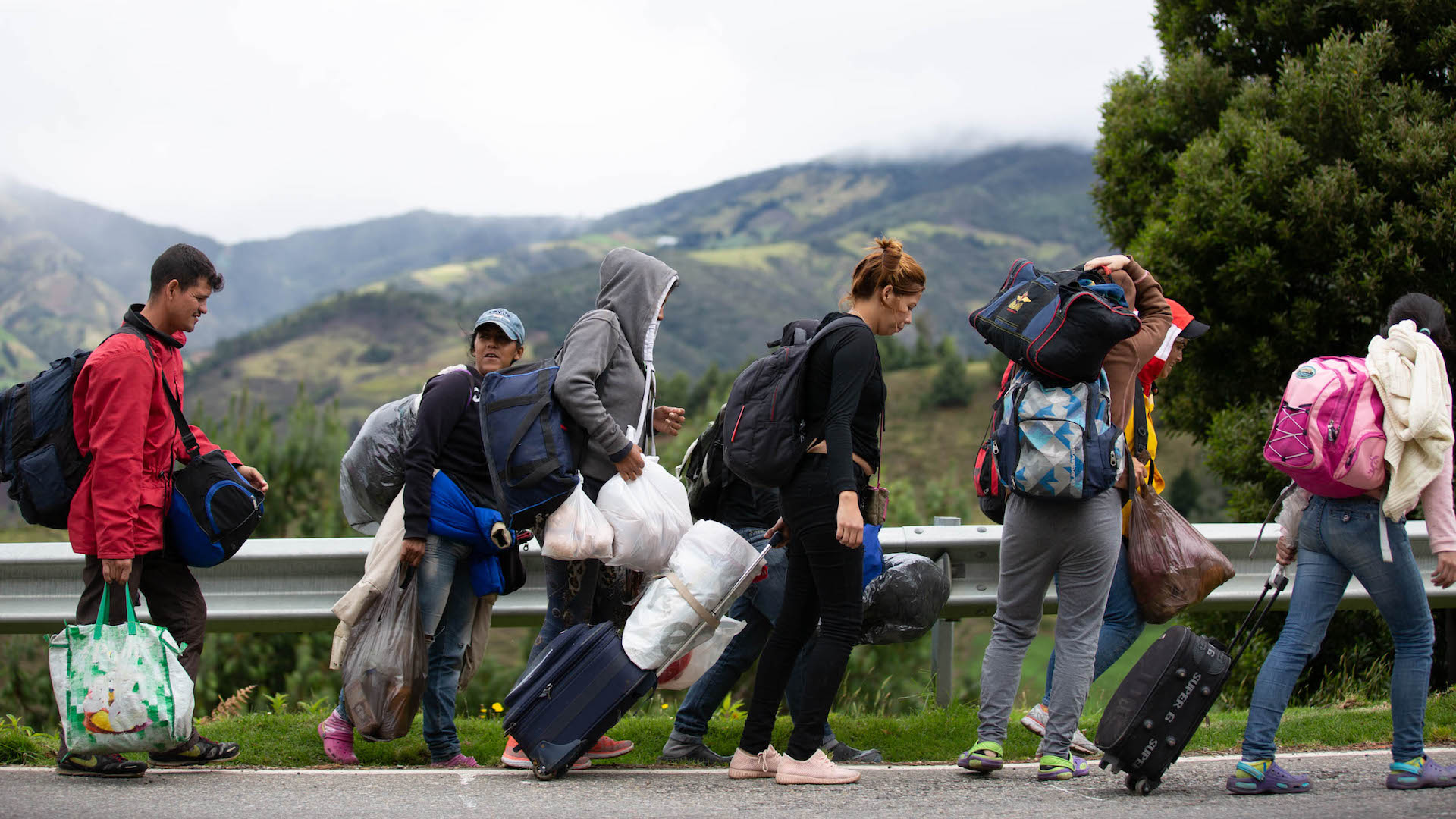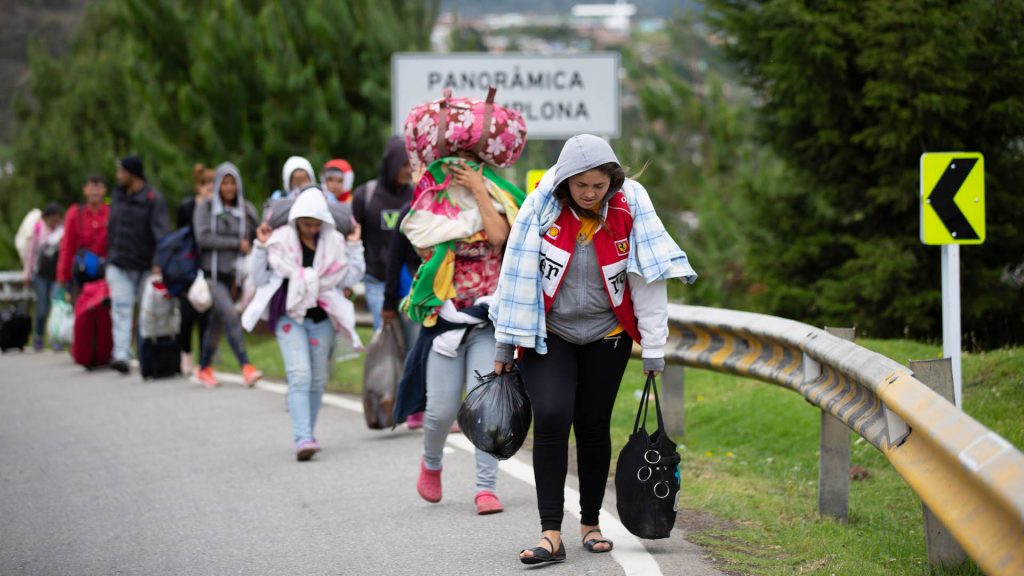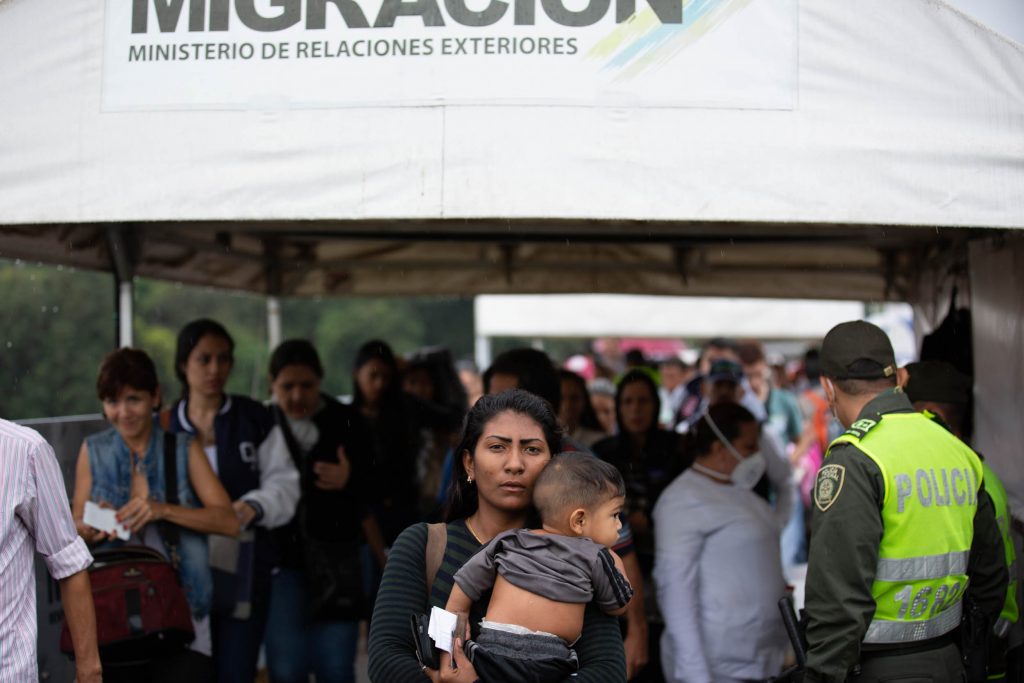
CÚCUTA, Colombia (BP)—When Nelson Martínez’ father died this summer, Martínez inherited a piece of property half a day up the mountain from his hometown of Cúcuta, Colombia. The property sits at 10,000 feet at the top of a cold, often rainy mountain pass. Every day several hundred ill-prepared Venezuelans walk over it on their way to try to find food, work and medicine in a new land.
Some have died of hypothermia. All are desperate.
Martínez, who has been serving as a pastor in Houston, Texas, feels like he inherited the property at just the right time to aid the masses fleeing Venezuela’s economic collapse.
Across the highway from his newly-inherited property, Martínez — along with a brother —also inherited from their father a medium-sized restaurant, unoccupied and unused for many years. “Every time he’s up there, these Venezuelans are going by and his heart just goes out to them,” said Theo Starr*, a 30-year International Mission Board (IMB) missionary who lived and served 27 years in Venezuela and now ministers to Venezuelans from neighboring Colombia.
Martínez, Starr and other individuals and organizations have joined forces to make a way station on that mountain pass for the Venezuelan “walkers,” as international media have dubbed them. Their plans entail a facility with bunk beds, heaters, showers and food. These believers from different countries and backgrounds all have one common desire: to shine light into the dark nightmare.
Starr’s heart’s cry is for more way stations to help each individual possible in the tide of people flowing out of Venezuela into Colombia and other surrounding countries.

Photo by James Nwobu
Since 2013, in the midst of an unprecedented economic meltdown, more than 2.3 million Venezuelans have spilled out of the country. Some in this exodus are returning Colombians who decades earlier had fled guerrilla warfare in their nation to make a new life in Venezuela.
Venezuela’s currency has plummeted this year, with prices doubling every 26 days on average, according to BBC News. Economists say the inflation rate will reach, and likely surpass, 1 million percent by the end of the year.
More than 5,000 people leave the country every day to escape hunger, unemployment, lack of medical care and one of the world’s highest homicide rates. As they do, the churches of National Baptist Convention of Venezuela have lost 20 to 30 percent of their membership, often including pastoral and other church leadership, Starr stated. Convention leaders have also shared that they don’t know how they will continue to pay convention personnel salaries.
Churches growing
Even so, God is at work, Starr said. Church numbers not only haven’t gone down — they’re going up because believers continue to share the gospel in the midst of suffering.
“They′re picking up the pace with community outreach and meeting needs, and that’s opening the door to share,” he said.
Outside Venezuela, pastors who have scattered across the continent are planting churches. Two new churches already are being planted in Cúcuta, and five Venezuelan church planting teams are working to start new congregations in Peru. And an IMB missionary in Chile is working with a group of Venezuelan church planters to adopt a location where no local church planter has stepped up to go.
“I’m of the opinion that in the next five to 10 years, Venezuelans will plant churches all over the Americas.” —Theo Starr
“I’m of the opinion that in the next five to 10 years, Venezuelans will plant churches all over the Americas,” Starr said. “It’s a picture of redemption in the middle of what is a massive refugee situation not far from U.S. soil.”
In a sea of overwhelming need, Starr said he’s seeking to do what he can and encourage others to do the same. As the crisis grows, the faith of churches in surrounding countries is being challenged. Starr said some churches in Colombia are seeing the need and stepping up, doing whatever they can to help the masses walking past.
“I tell them often,‘The mission field is walking in front of your churches, in front of your homes. This is a moment you can come to the plate and serve and be moved by the Spirit of God or you can stay shut up in your churches and do nothing,’” Starr said. “We are starting to see a movement from our churches here in Colombia, also in Peru, and elsewhere.”

Photo by James Nwobu
Across the region, funds from Baptist Global Response are undergirding their efforts. BGR has helped provide food and hygiene packets in several places to refugees leaving Venezuela. BGR project managers also are helping with farming techniques to train Venezuelans to grow high-yield crops for sustenance.
Just trying to sustain
Jeff Palmer, BGR’s executive director, said they’re trying their best to partner with churches in the area to meet the basic needs of the people.
“Many of these families were well-off and had to just walk away because they could no longer get food,” Palmer said. “They’re just trying to find ways to sustain their families. We want to help them as best we can.”
In Brazil, as one instance, BGR is partnering with others to help a Baptist refugee center provide Venezuelans a place to shower, do laundry, get a haircut, receive medical and dental attention, hear the gospel and receive spiritual counsel. Even so, resources are strained when it comes to meeting the vast need, Starr said.
“Pray for believers as they are suffering from a lack of food and basic medicines,” Starr asked. “And pray for pastors who take the brunt of ministering to people, hearing their stories and not having the resources to help them.”
To help support relief efforts, visit gobgr.org.
*Name changed
Reprinted from Baptist Press, news service of the Southern Baptist Convention.
Grace Thornton is a freelance writer in Birmingham, Ala.

